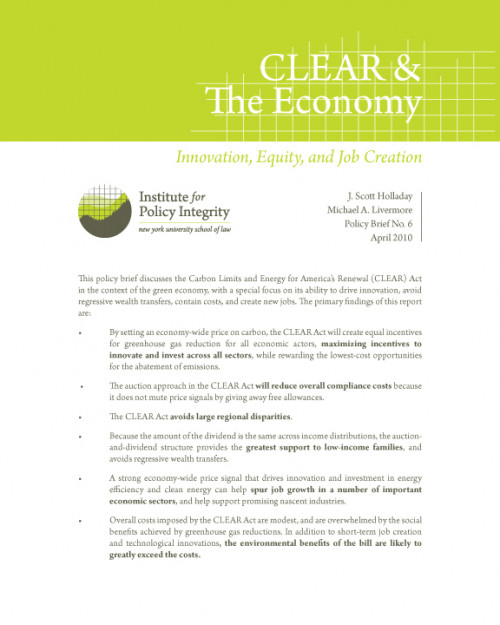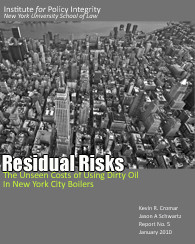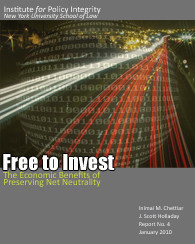-

CLEAR & The Economy
Innovation, Equity, and Job Creation
The CLEAR Act, sponsored in the Senate by Maria Cantwell (D-WA) and Susan Collins (R-ME), would place a price on carbon, auction 100% of the pollution permits, and refund most of the revenue back to consumers. This brief found that pricing carbon would spur investment and innovation in new energy technologies, giving a substantial boost to industries like manufacturing and construction—both hit hard in the recent financial crisis. Relatively well-paying jobs would be generated in these sectors, helping to mop up the slack created by the recession.
-
Public Comments on White House Cost-Benefit Proposal
Policy Integrity submitted comments today on proposed changes to the White House Council on Environmental Quality (“CEQ”) Principles and Standards for Water and Land Related Resources Implementation Studies. The proposal was released on December 9, 2009 and today marks the deadline for comments.
-
Letter to Senior Government Officials on Social Cost of Carbon Presentation
Today, Policy Integrity, with five national environmental organizations offered to senior officials in the Obama Administration recommendations on how the social cost of carbon (SCC) should be presented in greenhouse gas regulations.
-
OMB responds to Policy Integrity comments
Each year, the Office of Management and Budget reports to Congress on the benefits and costs of federal regulations. Policy Integrity’s faculty advisor, Dean Richard Revesz and executive director, Michael Livermore were asked to serve as peer reviewers of the 2009 report, released today.
-

Residual Risks
The Unseen Costs of Using Dirty Oil in New York City Boilers
In about 9,000 big apartment and commercial buildings in Manhattan, Brooklyn, Queens, and the Bronx, boilers burn a dirty fuel to heat their units. “Residual Risks” analyses the health, environmental, and economic benefits of switching away from this dirty fuel to cleaner alternatives like natural gas.
-
Research in support of heating oil regulations
For the last year, New York City has been working to develop potential regulation of the dirtiest heating oils used in residential and commercial boilers. Policy Integrity has been in close contact with city officials and interested advocacy groups as the rule is being developed to help quantify the potential health benefits and shape a rational regulatory response.
-
Comments in support of net neutrality rule
Policy Integrity submitted comments to the Federal Communications Commission (FCC) in support of a proposed rule that would prevent Internet-service providers from price discrimination. The comments argue that the presence of positive externalities, including the public good nature of information and network externalities, justify the regulation.
-

Free To Invest
The Economic Benefits of Preserving Net Neutrality
It is hard to imagine a future where the value of the Web takes a downward spiral: where less content is created, online access is less useful, and fewer people log on. In Free to Invest, the Institute for Policy Integrity warns of negative economic consequences if net neutrality is weakened. The report arrived at five main findings that describe the trade-offs of revoking net neutrality.
-
NY State Energy Plan released
New York State released its final Energy Plan today. Few changes were made from the revised draft version from the draft version. Policy Integrity had proposed distributing tradable energy vouchers to businesses instead of pure electricity subsidies in order to incentivize them to reduce their electricity usage—at no extra cost to taxpayers.
-
Comments on proposed vehicle emission and fuel-economy standards
Policy Integrity submitted two sets of comments regarding the federal government’s proposed regulations to control the emissions and fuel economy standards of America’s fleet of light-duty vehicles (cars, SUV’s and pick-ups but not larger trucks).
